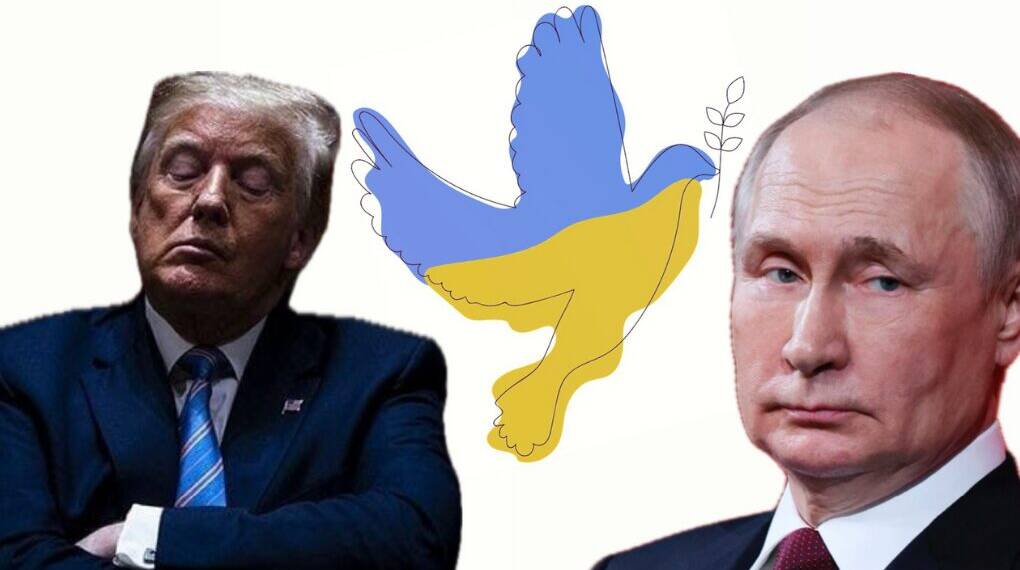U.S. President Donald Trump’s aspiration to present himself as the statesman who could end the Ukraine war appears increasingly hollow. Developments over the past week underscore how Moscow—not Washington—is setting the terms of engagement, with Vladimir Putin maneuvering to ensure that any settlement process runs through him.
Putin Signals Cooperation, While Raising New Barriers
In Moscow, Russian Foreign Minister Sergei Lavrov outwardly struck a tone of openness by repeating that Putin remains willing to meet his Ukrainian counterpart, Volodymyr Zelenskyy. Yet his words were quickly undercut by the conditions he attached. Lavrov emphasized that such a meeting could only take place once “all issues for discussion at the highest level are fully prepared.” More pointedly, he cast doubt on whether Zelenskyy, whose presidency has extended past a postponed election, retains the legitimacy to negotiate binding agreements.
The implication was clear: even if Ukraine was willing to engage, Russia would not treat Zelenskyy as an empowered negotiator until his mandate was reaffirmed. Moscow has repeatedly used this line of reasoning to frame Kyiv’s leadership as legally precarious, and Lavrov revived it now to stall any chance of direct contact. Effectively, the door to Putin-Zelenskyy talks is open in principle but locked in practice.
No Room for NATO in a Future Settlement
Former Russian President Dmitry Medvedev went further by extinguishing any notion that Western troops could serve as neutral actors in a future peace arrangement. Rejecting discussions of European or NATO-led peacekeeping operations, he insisted Russia “does not accept any NATO troops in Ukraine,” reinforcing Russia’s longstanding view that the Alliance itself is a belligerent actor in the war. In Moscow’s narrative, NATO cannot credibly guarantee stability—it is the source of escalation.
Such language was not simply rhetorical posturing. By forcefully ruling out Western-led peacekeeping, Russia is pre-empting models of conflict resolution used in other post-Cold War theaters, leaving few options beyond bilateral arrangements brokered directly with Moscow at the table’s head.
Trump’s Parallel Messaging
Amid these Russian statements, Trump attempted to reassert himself in the conversation. Writing on his social media platform after Russian strikes destroyed an American-owned electronics factory in Ukraine, he framed Ukraine’s predicament as one of being forced into permanent defense. Comparing Kyiv’s forces to a sports team forbidden from attacking, he suggested the only plausible path to victory required striking inside Russia itself.
The message was striking in its own contradictions. On the one hand, Trump faulted Joe Biden for restricting Ukraine’s offensive capacity; on the other, Trump himself has been unwilling to commit support for long-range strikes or advanced missile systems such as Patriots, both of which Zelenskyy continues to request. His words, therefore, carried the air of campaign rhetoric rather than a concrete policy plan.
For Moscow, however, the reactive tone of Trump’s remarks likely reinforced its perception that Washington lacks coherence—and that Putin’s methodical, condition-laden diplomacy is shaping the tempo of events.
Putin Consolidates Narrative Control
The week’s developments culminated with Putin marking the anniversary of Russia’s nuclear sector, hailing workers for maintaining a “reliable nuclear shield.” The message, couched in patriotic language, was also a reminder of deterrence. While Trump debates whether Ukraine should go on offense, Putin projects himself as the steady custodian of Russia’s strategic arsenal—another signal of who Moscow believes holds the decisive cards.
The Dealmaker in the Kremlin
Trump may wish to portray himself as the figure who can cut through bureaucracy and secure peace in Ukraine. But the practical reality is that Russia has little incentive to grant him such a victory. By sowing doubt about Zelenskyy’s legitimacy, rejecting NATO’s potential involvement, and continuing targeted strikes, Moscow is demonstrating that it—not Washington—dictates the framework of negotiations.
For Ukraine, this is a dangerous scenario: its options shrink even as international debates swirl around it. For the West, the challenge is equally severe—whether to allow Putin to monopolize the language of “peace” while continuing a war of attrition, or to find new leverage that tests his claims of openness.
What is becoming evident is that Trump, for all his rhetorical flourishes, is an observer trying to stay relevant in a contest where Putin has already positioned himself as the indispensable dealmaker.








